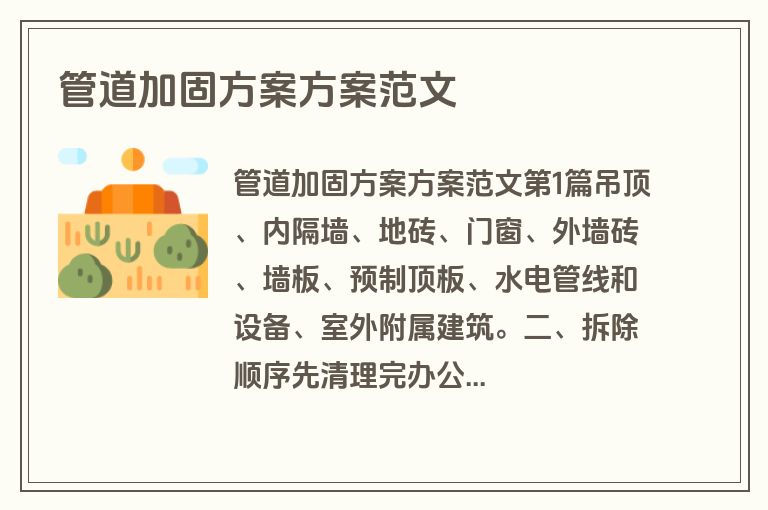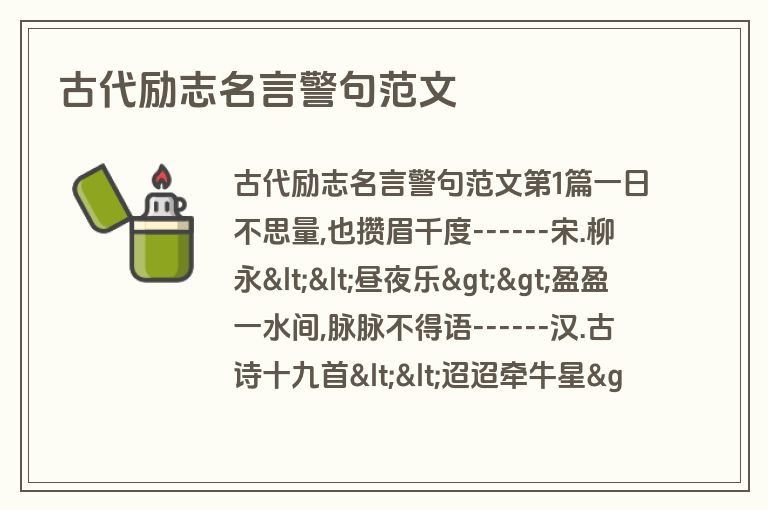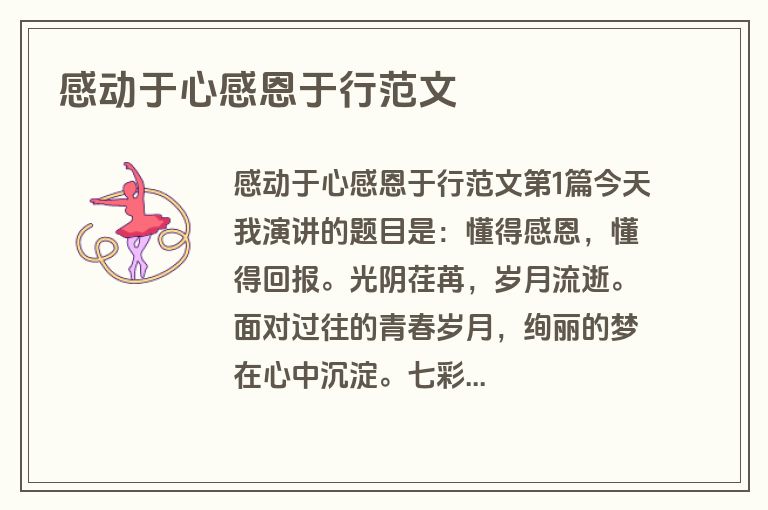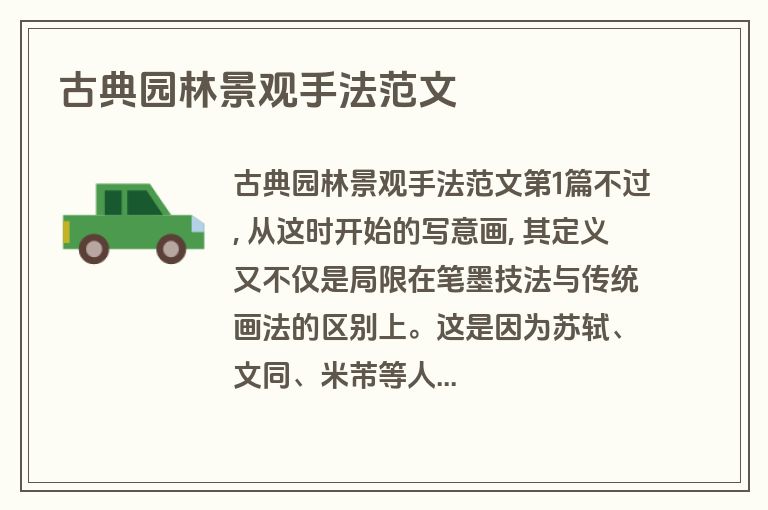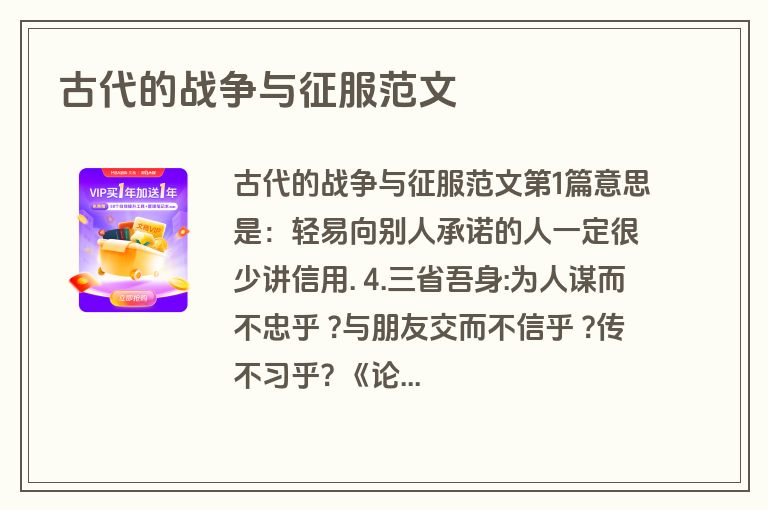情态动词的教案范文第1篇
二、Teaching Aims: 1.Use can talk about the ability at present. 2.Use could talk about ability in the past.
三、Teaching Key and Difficult Points: How to use “can” and “could” to express ability in the present and past.
四、Teaching Methods: Task-Based Language Teaching Method
五、Teaching Procedures: Step 1:Warming up
Task 1: Revision T: What can you do now? S1: I can sing. S2: I can draw S3: I can dance. T: Can you ride a bike / swim / fly a kite / play football / play chess? Ss:Yes , I can. / No, I can’t.
Task 2: Playing a game T: Now let us play a game. Five students come to the front and perform for to my instructions.and gestures.The others answer my questions. T : What can she do? Ss : She can ride a bike /swim/ fly a kite/ play football / play chess . T: Can she swim/ fly a kite/play football /play chess. Ss: Yes ,She can? No, she can’t. T: Say the whole sentences: eg: A can ride a bike. He can’t / cannot swim. Step 2: Presentation T: Can you ride a bike now? S1:Yes. I can T:Could you ride a bike five years ago ?
Yes, I could./ No, I couldn’t ( Help him answer) S1:Yes, I could./ No, I couldn’t. T: we can use “could” t talk about the past
.e.g I can play computer now .But, last year I couldn’t play. T: Could you row a boat last year? S1:Yes I could . No, I couldn’t.
T: Could she he row a boat last year?( Ask other students) Ss: Yes she he could . No she he couldn’t T:Yes , A could ride a bike five years ago. He couldn’t swim five years ago.
the class according (Teach the students to say the whole sentences): A could ride a bike five years ago. He couldn’t swim five years ago.) (Ask other students in the same ways) Step 3: Practice :work in pairs T: Ask your partner more questions eg: Could he / she ?
(Yes, he / she could. / No, he / she couldn’t.) ... Step 4: Production Task 3: Explanation T: Let’s work out the rule.
① 肯定句式: can could
② 否定句式: can’t couldn’t
③ 疑问句式: Can ?Could ?
T: We can use “am (is , are) able to “ instead of “can”,and “was (were) able to “ instead of “could“.
eg.①Mike can sing more than 20 English songs.
Mike is able to
②She could speak English when she was four. She was able to
情态动词的教案范文第2篇
情态动词的特征:
1.在形式上,情态动词没有实义动词的各种变化。
2.在意义上,大多数情态动词有多个意义。
3.在用法上,情态动词与助动词一样,须后接动词原形。
情态动词各自的基本意义及用法
一、can 与could用法对比表
对比点 can could
1、表“能力” Can you lift this heavy box? I couldn’t understand what he said at all.
2、表“许可” You can use a different material instead. He said I could borrow his bike.
3、“怀疑” No, no, it can’t be true.
What on earth can this mean? We thought the story could not be true. How could you be so careless?
4、can与be able to 区别 1. could代替 can,表示语气更为婉转。
Eg. Could I use your bike? Yes, you can.
2. can (能够)=be able to(仅表能力时),但be able to 表示一番努力后,才能做得到,且有更多的时态。
He was a good swimmer, so he __________ swim to the river bank when the boat sank.
A. could B. might C. shall D. was able to
二、may与 might用法对比表
对比点 may Might
1.表“询问” May I ?(=Can I ?) Might I ?(=Could I?)(但比用may 更客气) 1
2.表“允许” You may take the boy there. He told me he might come .(might 与told相呼应)
3.表“可能”“或许” She may nor like this place. I’m afraid he might not like this play.
注: 1. May I?的答语。
2.may可表示期望或祝愿
May you succeed !
3.may (might)用于目的状语从句中 肯定:Yes, you may.
否定:No, you mustn’t 不行(语气强硬)
No, you may not 或No, you’d better not.
The emperor gave them some gold in order that they might begin their work at once.
三、must与have to的用法对比表
对比点 must have to
1.表“必须” (主观看法)必须;没有过去式,可用于间接引语中。He told me I must do according to what he said. (客观需要)不得不,有多种时态。It’s raining heavily, we can’t go now.
2.疑问句 Must I ?
Yes, you must.(一定)
No, you needn’t./ you don’t have to.(不必) Do you have to go today?
Yes, we do.
否定句:You don’t have to worry about that.
四、need与dare的用法对比表
对比点 need dare
1.情态动词+动词原形
1)否定式
2)疑问式 He need not (needn’t)go.
----Need we do it again?
---No, you needn’t do it again. He dare not say so. 2
Dare she go out alone at night?
How dare you say I’m unfair?
If he dare do that, he’ll be punished.(条件句)
I dare say.(固定用法)
2.行为动词+带to不定式
1)肯定式
2)否定式
3)疑问式 He needs to go.
He doesn’t (does not)need to go.
Does he need to do it again?
No, he doesn’t need ot do it again. He dares to say.
He does not(doesn’t)dare to say.
If you dare to jump into the water from here, so dare I .
3. did not need to do
表示过去没有必要做 She didn’t need to attend the meeting yesterday, and she stayed with her children.(她没有参加)
五、should与ought to用法对比表
对比点 should ought to
1、表“应该” 表劝告、建议
You should listen to the doctor’s advice.
We should learn from Zhang Hua 表示“有责任有必要”做某事
You ought to finish your work before you go home.
We ought to help each other.
2、表“估计”
They should get home by now. 表示“非常可能”的事,可译为“总应该”
If we start to work right now, we ought to finish it before lunch.(午饭前应当能干完)
注: 1)、should还可在虚拟语气中的使用
2). 注意:ought to的疑问式及否定式
----Ought he to go? ----Yes, I think he ought to.
No, he oughtn’t to.
否定式:ought not to a或oughtn’t to do(不说ought to not do)
反疑问句:oughtn’t ______?
六、shall与will的用法对比表
shall Will
1. 征询对方意见或请求指示,用于第
一、三人称:
Shall I (we)?
Shall he (she)? Where shall I (we)wait for you? 1. 询问对方的意思或向对方提出要求:
Will you(please)? Won’t you?
Would you like to?(用would替代will更客气)
----Won’t you go and see the film?你不去看电影吗?---Yes, I think I will. 不, 我想去。
2. 表示说话人的“意愿”有“命令”“警告”“强制”“允诺”“决心”等,用于第
二、三人称,要重读。
You shall do what I tell you ( to do).
我叫你干什么你就干什么。
Everything shall be done to save the ship.
一定要竭尽全力来拯救这艘船。 表示“意志”“意愿”,用于各种人称:
I won’t do anything you don’t like.
我不会做任何你不喜欢的事。
Would表示过去时间的“意志”“意愿”
Shylock would not take the money earlier.
夏洛克先前是不肯要钱的。
七:used to与would用法对比表
used to would
1.表示过去的动作、状态,重在与现在情况的对比,不一定要有时间状语。
I used to play cards a lot, but now I seldom play. 4
My hometown is not what it used to be. 1.只表示过去动作的重复,有明确的时间状语
I would go to see my grandfather on Sunday when he was in the middle school.
2.would 后只接表动作的动词,不接表认识或状态动词
He used to be nervous in the exam.
2.表示过去的习惯有时可互换:
When we were very young, we used to / would go skating every winter.
2. 表示过去的次数时,不能使用:
( √)We went to the Great Wall five times when we were young.
( X ) We used to go / would go to the Great Wall five times when we were young.
注:used to do的否定式:usedn’t to do 或didn’t use to do (usedn’t也可写作usen’t)
疑问式: Did you use to do ? Didn’t you use to do?
Used you to do? Usedn’t you to do?
情态动词表推测
情态动词表推测的意义:
1、大多数情态动词(除表能力、许可、意志’外),都可以表示推测,其程度有差异。按其可能性程度的高低排列为: Must ﹥will ﹥would ﹥ought to ﹥ should ﹥ can ﹥ could﹥ may ﹥ might
肯定 完全可能 很可能 可能 有可能
2.注意区分情态动词的否定的含义:
may not或许不、可能不 might not可能不 can’t 不可能
mustn’t不许、禁止 shouldn’t不应该 needn’t 不必
3.情态动词表推测具体运用:情态动词可以对现在、进行、过去推测
S主+情态动词+be+adj 对“性质”“特征”的推测
S主+情态动词+be+n 对“职业”“事物”的推测
S主+情态动词+V原 对经常性行为的推测
S主+情态动词+be+V-ing 对进行着的行为的推测
S主+情态动词+have+PP 对过去的行为的推测
特别提醒:情态动词表推测时
1、 can只能用于否定句和疑问句
2、 must只能用于肯定句(它的否定句和疑问句其实就用can来代替了)
3、 如句中有情态动词 + 完成时,定是对过去的推测 。
4、 句中如有表示不肯定的话语,如:I am not sure; I don’t know 之类,常选may /might的各种形式
4. 记住下面几组表示反劝的特殊的表推测的形式
1). could + have + PP表示本来能做到,但事实上没有做到。 He could have finished the task on time, but the heavy snow came.
2). couldn’t +have + PP表示本来不能做到,但已经做到了。 She could not have covered the whole distance, but in fact she arrived ahead of time.
3) needn’t + have + pp表示本不必做的,但已经做到了。 She needn’t have attended the meeting yesterday, but she did.
4.) should/ought to +have + PP表示 该做而没有做 The plant is dead. I should/ought to have given ot more water.
5) shouldn’t/ oughtn’t to +have + PP表示 不该做而做了。 You oughtn’t to / shouldn’t have taken her bike without permission.
5. 记住下面对比:
must只能用于肯定句(它的否定句和疑问句其实就用can来代替了)
1.must + have + PP 表示对过去肯定的推测,译为“一定是,准是” The road is wet. It must have rained yesterday.
2.can + have + PP 表示对过去的推测(限于问句中) Can she have said so? 他可能这样说吗?
3.can’t + have + PP 表示对过去的否定推测 He cannot have said such a foolish thing.
情态动词表推测的反意疑问句
情态动词表推测的反意疑问句,简单来说,就是以情态动词后的时态为淮,如句子里有明确的时间状语,则以其为准。以 must 为例:
eg. 1. You must be hungry now, aren’t you?
2. He must be watching TV , isn’t he ?
3 Tom must have lived her for a long time, hasn’t he ?
4. She must have arrived yesterday, didn’t she?
情态动词的教案范文第3篇
我边画简笔画边说: I can do a lot of things. What can I do? Do you want to know. Let me tell you. I can play table tennis.(画出第一幅图示并鼓励学生说出动词短语:play table tennis) . I can play the piano.(画出第二幅图示并鼓励学生说出动词短语play the piano). I can stand on my head.(画出第三幅图示并鼓励学生说出动词短语stand on my head). 然后我叫了五位学生,让他们做动作来告诉大家。我又问:What can he /she do? 让他们说出:I can.引出另外五个短语:play football, swim, roller blade, ski,ride a horse.接着让学生根椐学过的动词短语用句型Ican .I cannot.个自写出自己会做的事情和不会做的事情. 然后让学生利用句型:What can I do? Can you? Yes, I can.或No I can’t. 互猜彼此会做的事情和不会做的事情。这样可以让学生所学语言产生兴趣,从而激发学生的学习欲望调动学生的学习积极性。
这样通过大量的、反复的、多种形式的操练,要求学生在量中求质,在速度中求准确。
情态动词的教案范文第4篇
佘君贤
在英语中,有许多能跟复合句的动词.为了学生更好的理解并掌握这些动词,现特意把这些动词做以归纳和终结. 1. get get somebody to do something (使某人做某事 )
get something done(使某事被做)
get somebody / something doing (使某人或某物动起来) eg: who got you to stand there?
I have got my homework finished.
We must get the car running. 2. make make somebody do something (让某人做某事) make oneself done (使某人自己被--) make somebody /something +adj / n
eg: A good friend is someone who makes you happy. We make him monitor of our school. The teacher spoke loudly to make himself heard. I made him stand in the corner. =he was made to stand in the corner. 3. have have somebody do something (使某人做某事)
have somebody /something doing something (使某人或某物一直做某事 ) have somebody /something done (使某人遭遇某事或使某事被作 ) The teacher had him repeat what he said. The man had the candle burning all the night. He had his leg broken. 4. let somebody do something (让某人做某事 ) 5. keep somebody doing something (让某人不断的做某事)
keep somebody / something done (使某人或某物被作) keep somebody +adj /adv/ /prep phrase (使某人或某物处于某种状态 ) when he washes his hands , he keeps water running. The teacher kept us informed of the decision Please keep the door open /light on . 6. leave somebody doing something (使某人不断的做某事 ) leave something done (使某事被做) leave somebody / something +n /adj / prep phrase eg: leave the door open. He was left an orphan. 7. catch somebody doing something(抓住某人正在做某事 ) he was caught cheating in the exam. 8. see / watch /listen to/ hear / notice /feel /observe+n /pron/do something(看见某人正在做某事,指的是全过程) see / watch / listen to / hear / notice /feel /observe +n /pron doing something(看见某人正在做某事,指的是动作正在进行)
see /watch / notice /listen /listen to/ hear +somebody /something done (看见某人或某事被作) I saw him play on the playground. He saw the begger beaten to death. 9. find /think/ consider / make / believe+it +adj+to do/doing /that clause eg. He finds it difficult to learn a foreign language. 10. consider consider somebody to be consider somebody to do something/ to be doing something /to have done something consider somebody to do something (认为某人要做某事) consider somebody to be doing something (认为某人正在做某事) consider somebody to have done something (认为某人以作过某事) 练一练
1. Cabbage is considered to____the first computer in the world. A. invent
B. be inventing
C. have invented
D. have been invented 2.
Don’t leave the water ____)while you brush your teeth. A. run
B. running
C.
to run
D. being run 3. He looked around and caught a man ___ his hand into his pocket of a passenger.
A. put
B. to be putting
C. to put
D. putting 4.
Seeing the road ___ with snow, we had to speed the holiday at home, watching TV.
A. blocking
B. blocked
C.
to block
D. to be blocked 5. A cook will be immediately fired if he’s found ___ in the kitchen.
A. smoke
B smoking
C. to smoke
情态动词的教案范文第5篇
①(表能力)能,会
She can drive, but she can’t ride a bike.
A computer can’t think for itself.(不会思考)
②(可能,许可)能够,可以
The noise outside has stopped , now I can get down to my study.
--Can I use your telephone? --Yes, of course, you can.
You can go out to play when you do away with your homework.
③有时会,偶尔,
The climate of East China can be pretty cold in winter.
Jogging can be harmful for the health.
Even experienced teachers can make mistakes.
London could be rather cold in summer while I stayed there.
④(表温和的命令)请做,得
I’ll do the cooking, and you can do the washing.(请你去洗衣服)
You can go now.
⑤(表示猜测)可能
Can he be working till so late?
Who can it be at this time of day?
Can it be Tom? No, it can’t be Tom.
He is busy these days, so he can’t come today.
can 与be able to 的区别:
The fire spread through the hotel very quickly, but everyone was able to get out.(强调设法干成某事)
2.shall
⑪用于一三人称的问句中,表示征求对方的意见
Shall I shut the window? Yes, please.
Shall she go to the concert with us this evening?
Shall they come in?
Shall we go out for a walk?
⑫用于二三人称 ,表示命令,允诺,警告,威胁,强制
①You shall go to the front at once.(命令)
②Don’t worry .You shall get the answer this afternoon.(允诺)
③I promise she shall get a nice present on her birthday. (允诺)
④He shall be punished. 威胁
⑤You shall listen to me. (命令)
⑥The interest(利益利润)shall be divided into five parts, according to the agreement made by both sides. (命令法规)
⑦It has been announced that candidates(候选人) shall remain in their seats until all the papers have been collected.(表按规定)
3.must
⑪必须
I must keep my word.
You must get up much earlier.
⑫不必needn’t/don’t have to
--Must I wash the dishes at once?
-- No, you needn’t./don’t have to.
⑬mustn’t 禁止,不许
You mustn’t play with the knife.
Cars mustn’t be parked here.
--May I use your pen?
--No, you mustn’t
⑭(表必然性)必定
Everyone must die.
⑮(表固执,不满等)偏要硬要
Our there-year-old boy must do the opposite to what we ordered.
Just when I was busy, the neighbor must come and chat.
Why must you be so stubborn(倔强的)?
If you must know, I’m going to help him look for an apartment.
4. should
⑪ 应该
You should apologize to him.
We should attend the meeting.
⑫ (表预期)按理会, 想必会,一定会
The concert should be great fun.
The photos should be ready by 12:00.
The old man is always hunting the lions, so terrible things should happen to him. ⑬ (表惊讶,遗憾)竟然居然
I’m glad that your story should speak in such a way.
I wonder that a person like him should make such a mistake.
It’s a pity that he should resign.
⑭ (用于条件状语从句中)一旦,万一
If she should know the truth, she would be depressed.
If you should change your mind, let us know.
Ask him to call me up if you should see him.
⑮ (用于lest, for fear that, in case引导的句子)以免,唯恐
She gave me a list just in case I should forget what to buy.
He ran away lest he should be caught.
He gets up early for fear that he should miss it.
5. would
①(表过去的习惯行为)常常经常
When I was a child, I would often go skiing.
We would stay up all night talking about our future.
Every morninghe would go for a walk.
When he was here, he would go to that coffee shop at the corner after work everyday. 区别used to do sth过去常常
I use to be a waiter, but now a taxi driver.
There used to be a cinema here before the war.
Our country isn’t what it used to be.
②(表示说话者的厌烦焦躁)老是偏要
That’s exactly like Susie. She would come to me just when I was busy.
(老是在我忙碌时来找我)
I told him not to go, but he would not listen.(可他偏不听)
③ (用于if 从句)愿意乐意
If you would go there instead of me, I should be very glad.
如果你愿意代替我去那儿,我会很高兴的。
You could win if you would try要是你愿意尝试, 你会赢的
④ (用于否定句中,主语一般是事物,表某事物暂时的特性)就是不能 That window wouldn’t open.
That morning my car wouldn’t start.
When I called on him this morning, his dog wouldn’t let me in.
The door won’t open.
The car won’t start.
The doctor knows I won’t be operated on.
⑤ (表示推测)大概,大约
That would be his father .那大概设他父亲。
You would be about 10 years old then.你那时大概10岁。
It would be about ten when they left.
I thought she would have told you about it.
6.需特别注意:
①may well do sth =be very likely to do sth(很可能,完全能)
may as well do sth = had better do sth
② would like to have done
= would love to have done
= was/were to have done(本来想做,本来打算做)
③ had better have done sth(当时已做了就好了)
④ must have done sth(肯定干过某事)
⑤ can have done sth可能已干过
can’t have done sth不可能干过,肯定没干过
⑥could have done sth本来能够干 ,可能已干过
⑦ may /might have done sth也许已经干过,
⑧should have done sth
=ought to have done sth本来应该干
⑨needn’t have done sth本不必做
⑩would rather have done sth宁愿干过
would rather not have done sth宁愿没干过
好成绩是练出来的:
1.A left –luggage office is a place where bags ____ be left for a short time , especially at a railway station.
A shouldB canC must D will
2.How ___ you say that you really understand the whole story if you have covered only part of the article?
A canB mustC needD may
3.--There’s no light on.
--they ___ be at home.
A can’tB mustn’tC needn’tD shouldn’t
4.Some aspects of a pilots job ___ be boring ,and pilots often ___ work at in convenient hours.
A can, have toB may, canC have to, mayD ought to, must
5.He didn’t agree with me at first, but I ____ persuade him to sign the agreement later.
A couldB mightC ought to Dwas able to
6.If I ____ plan to do anything I wanted to, I’d like to go to Tibet and
A wouldB couldC had toD ought to
7.The World Web is sometimes jokingly called the World Walt because it ___ be very slow.
A shouldB mustC will D can.
8.Is Jack on duty today?
--It ___ be him. It’s his turn tomorrow.
A can’tB mustn’tC needn’tD won’t
9.I____ have been more than six years old when the accident happened.
A couldn’tB mustn’tC needn’tD shouldn’t
10.I have taken someone else’s green sweater by mistake.
--It ___ Harry’s. He always wears green.
A has toB will beC must beD could be
11.You ____ be tired , you have only been working for an hour.
A can’tB mustn’tC may notD won’t
12.Do you know where David is ?I couldn’t find him anywhere.
-- Well, he ___ have gone far. His coat is still here.
A can’tB mustn’tC may notD won’t
13.Can I pay the bill by check?
-- Sorry, sir. But it is the payment shall be made in cash.
A shallB mustC will D can.
14.Could I have a word with you, mum?
-- Oh, dear, if you ____.
A shouldB mustC may D can.
15.Naturally, after I told her what to do, my daughter ___ go and do the opposite.
A shouldB mustC may D can.
16.Who is the girl standing over there?
--Well, if you ___ know, her name is Mabel.
A shallB mustC may D can.
17.John, look at the time.___ you play the piano at such a late hour?
A NeedB MustC May D Can.
18._____ you need any help, you can phone me at the office.
A WouldB ShouldC CouldD Had
19.I’m afraid I will be too busy to go with you.
--Well, I’ll keep a seat for you in case you ___ change your mind.
A shouldB mayC will D can.
20.If anything __ happen to me, please give this letter to my head teacher.
A couldB mustC wouldD should
21.There is a real possibility that these animals could be frightened, ____ a sudden loud noise.
A being thereB should there beC there wasD there having been
22.When can I come for the photos? I need them tomorrow afternoon.
-- They ___ be ready by 12:00.
A shouldB mightC need D can.
23.It’s nearly seven o’clock. Jack ___ be here at any moment.
A shouldB mustC need D can.
班级________姓名_____________
1-5 ___________________2-10___________________11-15_________________
情态动词的教案范文第6篇
A. mustn’t leave’t have leftC. couldn’t have leftD. needn’t leave
2. ----Is John coming by train?
----He should, but he ________ not. He likes driving his car.
A. mustB. canC. need3. A left-luggage office is a place where bags _______ be left for a short time, especially at a railway station.
A. shouldC. mustD. will
4. ----Isn’t that Ann’s husband over there?
----No, it _______ be him -----I’m sure he doesn’t wear glasses.
’tB. must notC. won’tD. may not
5. You ________ be tired -----you’ve only been working for an hour.
A. must notB. won’t’tD. may not
6, I often see lights in that empty house. Do you think I _______ report it to the police?
B. mayC. willD. can
7. Mr. White _________ at 8:30 for the meeting, but he didn’t show up.
B. should arrive
C. should have had arrivedD. should be arriving
8. ----Tom graduated from college at a very young age.
----Oh, he ________ have been a very smart boy then.
A. couldB. shouldC. might9. ----Who is the girl standing over there?
----Well, if you ________ know, her name is Mabel.
A. mayB. canD. shall
10. Children under 12 years of age in that country ________ be under adult supervision when in a public library.
B. mayC. canD. need
11. “The interest ________ be divided into five parts, according to the agreement made by both sides,” declared the judge.
A. mayB. shouldC. must12. ----I don’t mind telling you what I know.
----You _______. I’m not asking you for it.
A. mustn’tB. may notC. can’t’t
13. I _______ pay Tracy a visit, but I’m not sure whether I will have time this Sunday.
B. mightC. wouldD. could
14. ----I’ll tell Mary about her new job tomorrow.
----You _________ her last week.
A. ought to tellB. would have toldC. must tell15. ----Excuse me. Is this the right way to the Summer Palace?
----Sorry, I am not sure. But it _______ be.
B. willC. mustD. can
16. ----Excuse me, but I want to use your computer to type a report.
----You _________ have my computer if you don’t take care of it.
’tB. might notC. needn’tD. shouldn’t
17. ----Mum, I’ve been studying English since 8 o’clock. _______ I go out and play with Tom for a while?
----No, I am afraid not. Besides, it’s raining outside now.
’tB. Wouldn’tC. May notD. Won’t
18. Tom, you _______ leave all your clothes on the floor like this!
A. wouldn’t’tC. needn’tD. may not
19. John, look at the time. ________ you play the piano at such a late hour?
B. CanC. MayD. Need
20. I ________ have been more than six years old when the accident happened.
A. shouldn’t’tC. mustn’tD. needn’t
21. He ________ have completed his work; otherwise, he wouldn’t be enjoying himself by the seaside.
A. shouldC. wouldn’tD. can’t
22. There _________ be any difficulty about passing the road test since you have practiced a lot in the driving school.
A. mustn’tB. shan’t’tD. needn’t
23. ----I’ve taken someone else’s green sweater by mistake.
----It ______ Harry’s. He always wears green.
B. will beC. mustn’t beD. has to be
24. He paid for a seat, when he _________ have entered free.
B. wouldC. mustD. need
25. ----The woman biologist stayed in Africa studying wild animals for 13 years before she returned.
----Oh, dear! She ________a lot of difficulties!
A. may go throughB. might go through
C. ought to have gone through26. The World Wide Web is sometimes jokingly called the World Wide Wait because it _____ be very slow.
A. shouldB. mustC. will27. ----Catherine, I have cleaned the room for you.
----Thanks. You ________ it. I could manage it myself.
A. needn’t do’t have doneC. mustn’t doD. shouldn’t have done
28. This cake is very sweet. You ________ a lot of sugar in it.
A. should putB. could have putC. might put29. ----Tom is never late for work. Why is he absent today?
----Something _________ to him.
A. must happenB. should have happened
C. could have happened30. ----Do you know where David is ? I couldn’t find him anywhere.
----Well. He _______ have gone far----his coat’s still here.
A. shouldn’tB. mustn’t’tD. wouldn’t
31. ----Lucy doesn’t mind lending you her dictionary.
----She _________. I’ve already borrowed one.
A. can’tB. mustn’t’tD. shouldn’t
32. Helen ________ go on the trip with us, but she isn’t quite sure yet.
A. shallB. mustD. can
33. There’s no light on ----they ________ be at home.
’tB. mustn’tC. needn’tD. shouldn’t
34. We hope that as many people as possible _________ join us for the picnic tomorrow.
A. needB. mustC. should35. ----What’s the name?
----Khulaifi. __________ I spell that for you?
B. WouldC. CanD. Might
36. Black holes ________ not be seen directly, so determining the number of them is a tough task.
B. shouldC. mustD. need
37. We _________ have proved great adventurers, but we have done the greatest march ever made in the past ten years.
A. needn’tC. shouldn’tD. mustn’t
38. ----Mr. Gordon asked me to remind you of the meeting this afternoon. Don’t you forget it!----OK, I _________.
’tB. don’tC. willD. do
39. The weather turned out to be fine yesterday. I ______the trouble to carry my umbrella with me.
A. should have takenB. could have taken
’t have takenD. mustn’t have taken
40. ----Could I have a word with you, mum?
----Oh dear, if you ________.
A. canC. mayD. should
41. As you worked late yesterday, you ________ have come this morning.
’tB. mayn’tC. can’tD. mustn’t
42. If it were not for the fact that she ______ sing, I would invite her to the party.
A. couldn’tB. shouldn’t’tD. might not
43. The workers will go on strike if the demands they _________put forward are turned down.
A. couldB. wouldD. had
44. ----I think I’ll give Bob a ring.
----You _______. You haven’t been in touch with him for ages.
A. willB. mayC. have to45. ----May I smoke here?
----If you ________, choose a seat in the smoking section.
A. shouldB. couldC. may46. ----Must he come to sign this paper himself?
----Yes, he ________.
A. needC. mayD. will
47. Some aspects of a pilot’s job __________ be boring, and pilots often _______ work at inconvenient hours.
B. may ; canC. have to ; mayD. ought to ; must
48. ----Is Jack on duty today?
----It ______ be him. It’s his turn tomorrow.
A. mustn’tB. won’t’tD. needn’t
49. ----How’s your tour around the North Lake? Is it beautiful?
----It ________ be, but it is now heavily polluted.
A. willB. wouldD. must
50. In crowded places like airports and railway stations, you ________ take care of your luggage.
A. canB. mayD. will
51. ----Guess what? I have got A for my term paper.
----Great! You ________ read widely and put a lot of work into it.
A. mustB. shouldD. should have
52. ----She looks very happy. She ________ have passed the exam.
----I guess so. It’s not difficult after all.
A. shouldB. couldD. might
53. ----What do you think we can do for our aged parents?
----You ________ do anything except to be with them and by yourself.
’t have toB. oughtn’t toC. mustn’tD. can’t
54. ----Turn off the TV, Jack. _________ your homework now?
----Mum, just ten more minutes, please.
A. Should you be doing’t you be doing
C. Couldn’t you be doingD. Will you be doing
55. My MP4 player isn’t in my bag. Where ______ I have put it?
B. mustC. shouldD. would
56. ----My can’s really fat.
----You ________ have given her so much food.
A. wouldn’tB. couldn’t’tD. mustn’t
57. The biggest problem for most plants, which ________ just get up and run away when threatened, is that animals like to eat them.
A. shan’t’tC. needn’tD. mustn’t
58. The teacher ______ have thought Johnson was worth it or she wouldn’t have wasted time on him, I suppose.
A. shouldB. canC. would59. ----Where is my dictionary ? I remember I put it here yesterday.
----You _______ it in the wrong place.
A. must putB. should have putC. might put60. ----What does the sign over there read?
----“No person _______ smoke or carry a lighted cigarette, cigar or pipe in this area.”
A. willB. mayD. must
61. I told your friend how to get to the hotel, but perhaps I _________ have driven her there.
